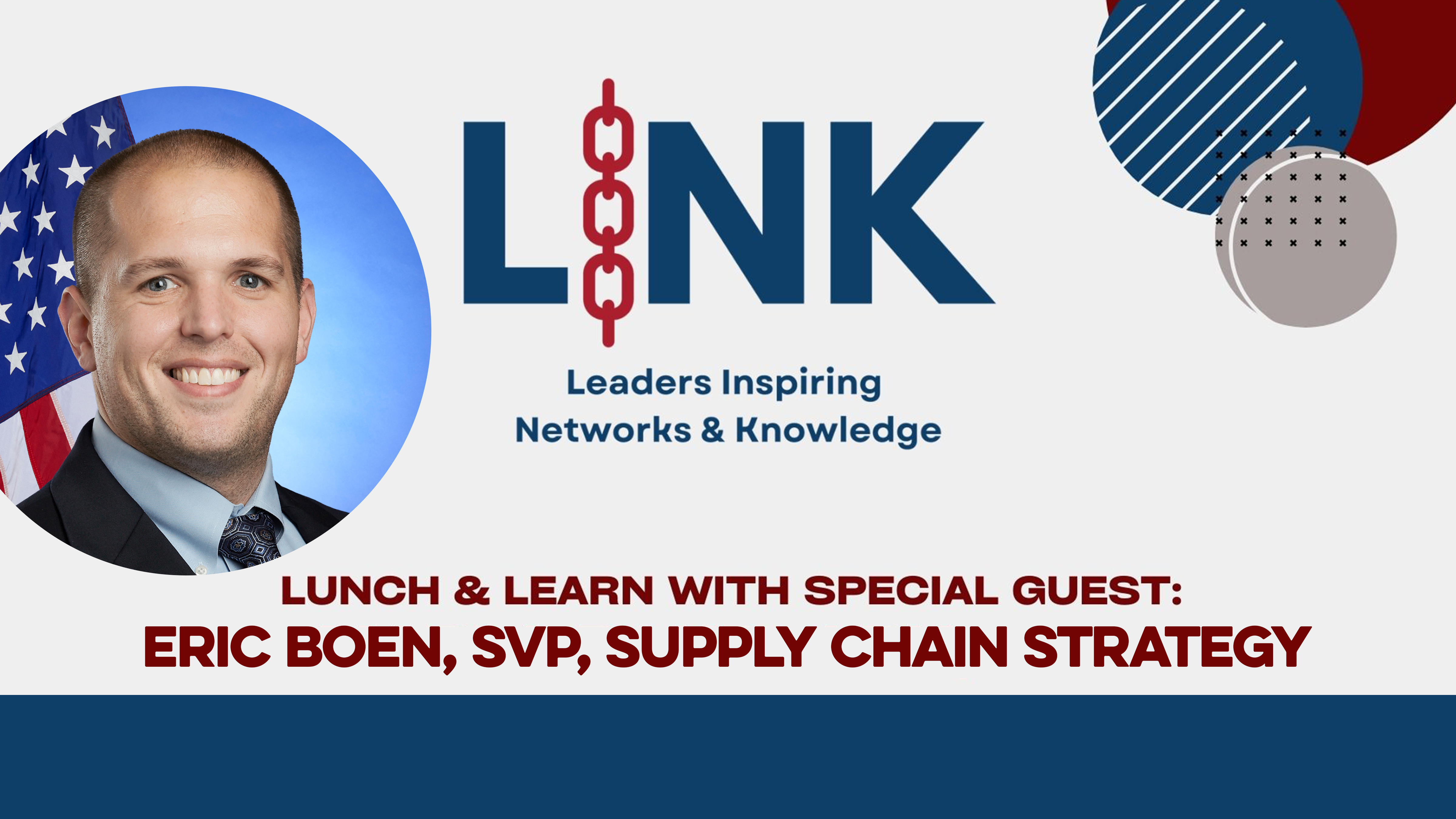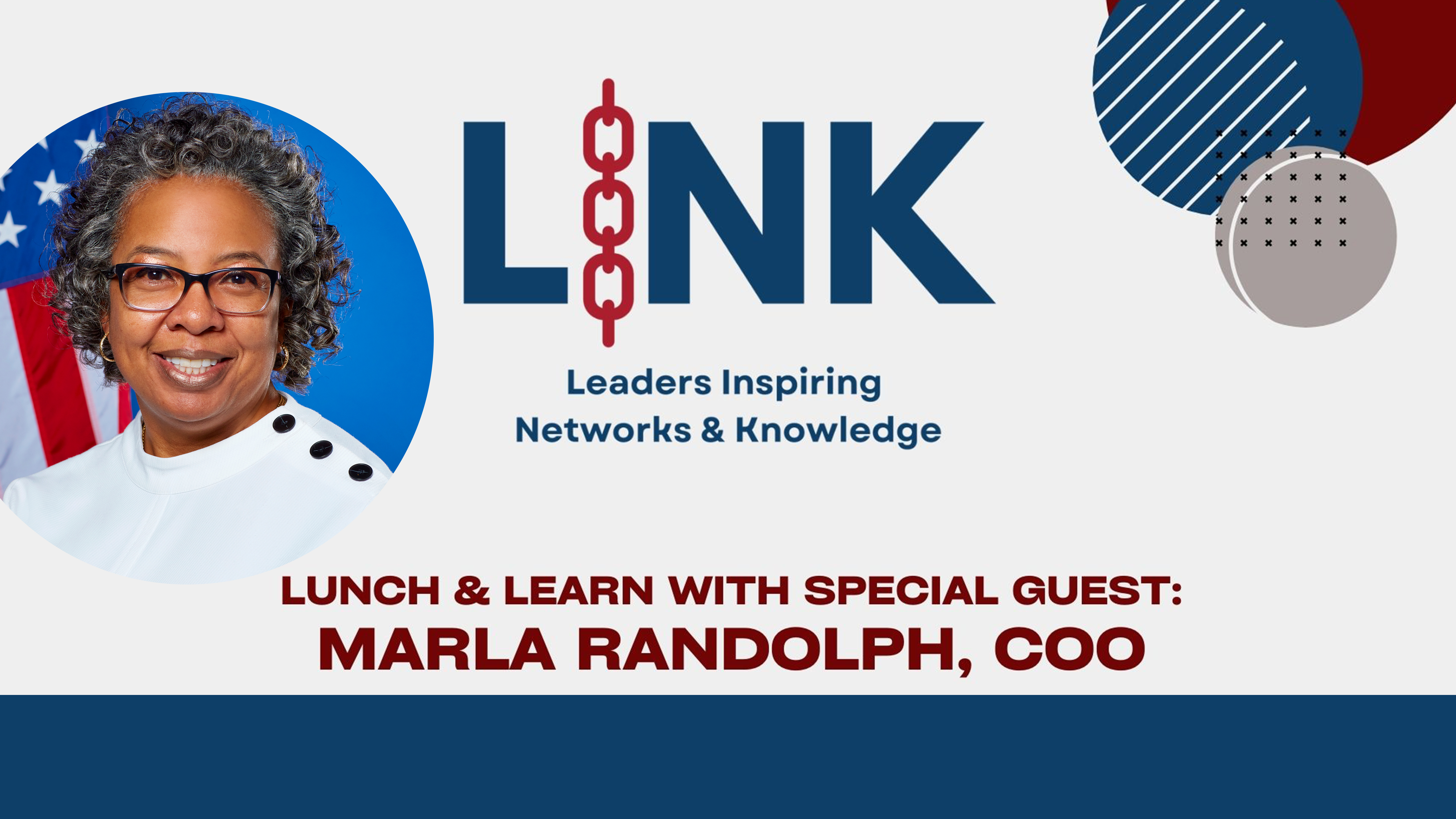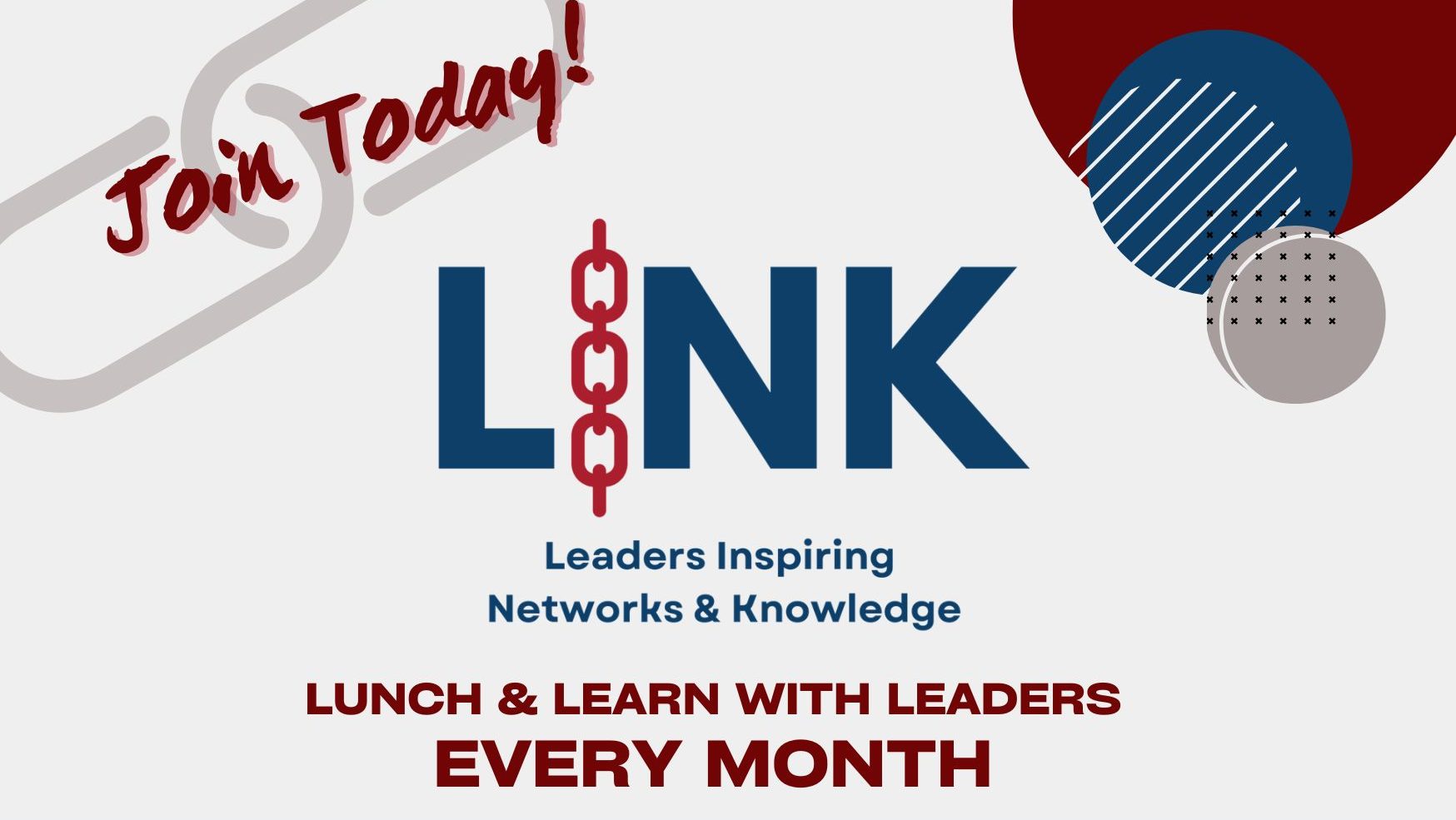In 2002, Eric Boen joined the Exchange, working in Finance & Accounting while he was still finishing work on his bachelor’s degree. By 2003, he’d begun a series of deployments to Iraq, where he decided that maybe FA wasn’t where he wanted to be.
“Your career is in your own hands,” Boen, now senior vice president, supply chain strategy, told an audience of about 175 during a LINK (Leaders Inspiring Networks and Knowledge) lunch and learn on June 30. “If you’re not where you want to be, if you’re not doing what you want to do, it’s up to you to change that.”
He’d made some connections in Iraq, and was able to move to Merchandising as a buyer when he returned to HQ. But then he decided that buying wasn’t where he wanted to be, so he moved to the Planning, Allocation and Replenishment (PAR) team, which was where he began to thrive.
“I had to sort of find my way across a lot of things, but my deployment experience was what got me interested in inventory management, we had 120-, 150-, sometimes 180-day lead times just to get stuff in stock,” he said. “People would deploy, and their first day on the ground, I would teach them how to order. They’d do this six-month deployment and we’d joke that by the time they were leaving, they would get their first order in.”
From PAR, Boen steadily progressed upward in titles and responsibilities, shifting from MD to the Logistics directorate when he became SVP of supply chain strategy in January. He told his Exchange story as a prelude to a talk on Foundations of Leadership, in which he discussed five foundations:
Effective Communication: This includes constructing a culture of collaboration—and reminding teams about the Exchange mission.
“For associates in the field, it’s easy to remember what the mission is: The customers you serve every day,” Boen said, adding that HQ teams sometimes need to be reminded. “We must remind people constantly and that’s communication. That’s collaboration. And ensuring that everyone’s together in that, ensuring that people are on the same page, is very, very challenging at times unless you make a conscious effort to do that.”
Communication also includes transparency and openness.
“People may not always like what you have to say, but they will respect it if you’re honest,” Boen said. “They’re not going to like it a lot of the time, and you may not like it yourself, but it’s better to get the news out there.”
Challenge the Process: Boen said that it’s good for associates to work for improvements—but they first have to understand why the Exchange does what it does in serving those who serve and have served.
“We are incredibly complex,” Boen said. “We operate the single most complex supply chain of pretty much any retailer on the planet. So when people walk in without understanding exactly what we do or why we do it, without having the years of history and experience behind the little things that we do and why they’re done the way that they’re done, that can be very dangerous. But we should always drive improvements once we understand why we do what we do—because there’s always room for improvement.”
Challenging the process can also mean challenging yourself and being open to change what means a lot to you.
“This is my 23rd year with the Exchange,” Boen said. “Being in Planning, Allocation and Replenishment for so long, I was able to establish a ton of processes. But what worked in 2010 or 2014 may not work today. And yet I helped develop that process, I’m in love with that process and that process is my baby, so I don’t want it to change. But I have to allow it to change. I have to be open to that change. That is a part of how we bring people in.”
“And if you’re a leader, the people you bring in should fill in your gaps.” he added. “If you’re the smartest person in the room, there’s a problem. Always find people who are smarter. Those are your advisors. They’ll take care of you as long as you listen.”
Understanding Incentive Systems: “It can be demoralizing when you’re working 12-, 13- or 14-hour days and people don’t see or acknowledge that, and instead all you get is the negative,” Boen said. “Because I know everybody on this call is working incredibly hard. You need to be recognized for those efforts. Recognize your team first and your leadership will start to understand that they should be recognizing you for the incredible leader you are.”
Boen added that leaders should also be completely aware of what they’re asking of their teams. “Think about this when you’re talking to your associates,” he said. “Think about the types of behavior that you incentivize by asking them to do certain things.”
Dynamic Leadership Style: Boen said that leaders need to tailor their leadership style to each associate on their team. He cited an example from his days as a PAR manager.
“I was working with a gentleman who graduated college five years before I was born,” Boen said. “And then I had an individual who I had I just hired into their first-ever planner job. I had a planner with 40 years of experience, and I had a planner with four days of experience. There’s no way I could lead these individuals the same way. That 40-year-plus associate was teaching me things, the same way that I could lead that other individual who needed me a little bit more closely involved.”
But leaders also need to tailor their approaches to associates every time they work with an associate. “That new person didn’t need the same version of me or my leadership style on Day 365 that they needed on Day One, because they were experienced,” Boen said. “We lose a person who’s still being micromanaged as if they were a brand-new associate.“
Support Risk Taking: Boen encouraged the audience to view risk-taking not through the lens of what has succeeded, but what has failed.
“I 100% expect that if we’re truly taking risks, we will fail,” Boen said. “But learn lessons fast.”
He also encouraged taking measured risks. “If you’re taking a measured risk, you’re making the best decision possible with the information available at the time,” he said. “You learn from failures. You learn what not to do, and many times it’s a lot better than what to do. It’s going to shape the course of your career, your decision-making and your business a lot more.”
After speaking about leadership, Boen segued into a discussion about data-driven decisions and about using your instinct when dealing with data. He said that people who believe something is happening in their area of responsibility are probably right, because they’re experienced in that area. But he also urged the audience to back up perceptions with data—and to be prepared if the data proves them wrong.
“I think I have a reputation for being analytical,” Boen said. “I actually think of myself as more of an artist. I tend to work more off my gut but I’ve learned to caveat everything I say. As you say things, people will actually start doing them, which is crazy to me. You have to start cautioning yourself to say, “I didn’t mean that, what I really meant was that it would be a good idea if we do X. But let’s put some data behind that. Can we get some numbers to see what they tell us?”
In response to a question after his talk, Boen said that one of the biggest obstacles he’s encountered since being with the Exchange was building relationships—because of his own introversion.
“I had to establish a business personality vs. my normal personality,” he said. “I’m very introverted, so it’s difficult for me to build relationships with people. I just don’t put myself out there. I don’t like to talk. Sometimes you have to do the jobs other people don’t want to do. Sometimes you have to put your head down and work. I’m definitely more of a ‘put your head down and work’ type of person.”
But establishing those relationships has been key to his time at the Exchange and to his leadership.
“There are people that I work with today, who report to me, who I learn from all the time because they’re tremendous leaders. Not just at the top, but across every level of the organization. You can always learn something from somebody. And I’m trying to do that every day.”
LINK is an initiative that aims to strengthen workplace culture, boost morale and reinforce the value of connection. Each month, a senior leader will host a session via Teams aligned to key business priorities (Chief Operating Officer/EVP Marla Randolph kicked off the series in June). These meetings go beyond presentations, offering candid discussions with leaders sharing insights, personal stories, challenges they’ve overcome and lessons learned. The sessions are designed to inspire, encourage growth and offer actionable takeaways.
The sessions are open to all associates (the LINK group currently has nearly 600 members) For more information, associates can contact CorporateLearning@aafes.com or join the Exchange LINK Team channel on Microsoft Teams.





Leave a Reply to Karen Seigh Cancel reply